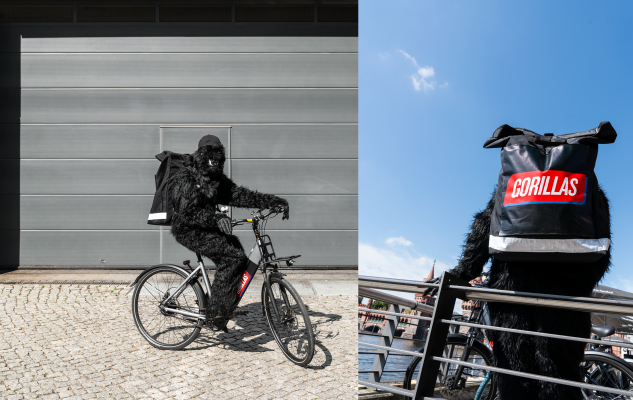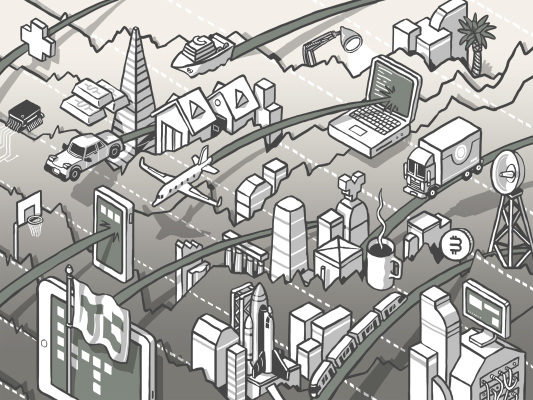Gorillas, a grocery delivery startup that operates its own hyper local fulfillment centers and has already been a hit in Berlin, has raised $44 million in Series A funding.
Probably one of European tech’s worst kept secrets this year, the round is led by hedge fund Coatue, with participation from other unnamed European investors. Coatue’s Daniel Senft and Bennett Siegel will join Gorillas‘ board.
Noteworthy, Accel and Index were reportedly in the running, but ultimately didn’t invest. Atlantic Food Labs previously backed Gorillas in a seed round thought to be around €1.2 million.
Founded by Kağan Sümer and Jörg Kattner in May this year and operating in Berlin and Cologne, Gorillas delivers groceries within an average of ten minutes. Unlike gig economy models, it employs riders directly and is emphasising its ability to get fresh groceries, along with other household items, to shoppers at very short notice and at “retail prices”. The idea is that the startup can address a large part of the groceries market that falls outside of a weekly bulk shop.
Some have dubbed the model that Gorillas is attempting to make work, “dark” convenience stores, in reference to the dark kitchens that run on top of Deliveroo and UberEats and operate as delivery only restaurants. In this instance, Gorillas and other European competitors, such as Dija (which we reported is closing its own large funding round) and Weezy, are building out local delivery only grocery/convenience stores. These startups are also often compared to goPuff in the U.S.
Gorillas CEO Kağan Sümer says that mass supermarkets, including their delivery models, are designed so that the consumer organises their grocery shopping around the needs of the supermarket and supply chain, rather than the supermarket being designed around the needs of the consumer.
This sees an emphasis on long shelf life products, where even fresh goods are treated for longer expiry dates, and a model that serves the weekly bulk shop well, but at the detriment of two other use-cases: “emergency” shopping, such as when you’re missing a key ingredient, or quickly replenishing your fridge based on what you fancy consuming right now.
“The biggest problem is that bulk purchases are super served. What I mean by that is this: all of the supermarket infrastructure is shaped around bulk purchases,” Sümer tells me, arguing that this leaves one third of the market underserved.
“You have penne but no Arrabiata; how do you get that sauce that you need now? [There is] no way.
“So we asked ourselves, what would happen if a company pops up and serves people with what they need when they need it? Our hypothesis was that people would appreciate it and shift their interaction with groceries to more on demand purchases”.
With a slogan that reads: “Faster than you,” and a delivery fee of just €1.80, one question mark over Gorillas (and others in the space) is if the unit economics can ever stack up, especially at scale and if the company really isn’t marking up prices significantly. “Through our procurement relationships, we have healthy margins which allow us to sell at retail prices,” says Sümer, pushing back. “Taking into account the solid basket sizes and procurement margins we are able to build a long-term sustainable business”.
He says the average delivery time is 10 minutes. “Through our network of centrally located fulfillment centers we are able to service customers in a small delivery radius. Ultimately we strive to deliver an efficient and fast service with full transparency on delivery times,” adds the Gorillas CEO.
Meanwhile, Gorillas says the new funding will be used for expansion across Germany and will accelerate its rollout across more of Europe — first stop, Amsterdam. Additionally, the company will use the capital to build out its team in Berlin. More ambitious, by the end of Q2 next year, Gorillas says it plans to be available in over 15 cities in Germany and across Europe, operating over 60 fulfillment centers.










